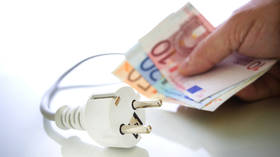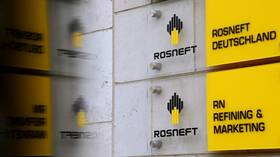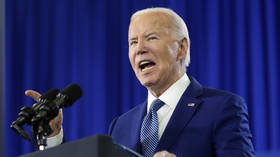Power prices in Germany forecast to soar

Electricity prices in Germany are expected to jump to record highs next year, the Neue Osnabrucker Zeitung newspaper reported on Friday, citing the country’s local public utilities association (VKU).
According to the report, prices could spike as much as 60% due to the reduction in gas supplies from Russia and subsequent increase in the cost of gas.
A representative of the association told the news outlet that while gas prices have been growing at a faster pace than the cost of electricity, the latter has already spiked by more than 10% this year and is likely to catch up soon. The report states that municipal energy companies will likely be forced to raise prices for consumers repeatedly to keep up with gas costs.
Utility end-users already have to pay 30-60% more for gas than before the sanctions war between the West and Russia kicked off in late February.
According to the VKU, even the recent drop in wholesale gas prices should not be taken as a sign of an easing on the market, as prices are likely to go up once the heating season starts.
The association warned that the additional annual energy costs will soon reach €2,700 for one-person households and €5,000 for a family of four.
The energy crisis in the EU was exacerbated in early July when gas flows from Russia were reduced due to sanctions and technical problems with the Nord Stream 1 pipeline. The European Commission then urged EU member states to prepare for a complete halt to Russian natural gas deliveries and set in motion a plan to reduce gas consumption by 15% across the bloc between August 1, 2022 and March 31, 2023.
Nord Stream 1 was shut down indefinitely late last month due to technical problems, with Russian gas now flowing to Europe at a fraction of its former volumes via the one remaining transit line through Ukraine and the Turkstream pipeline through Turkey.
For more stories on economy & finance visit RT's business section













